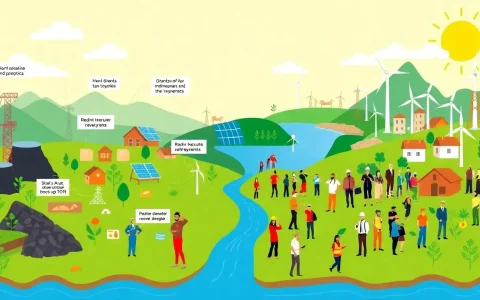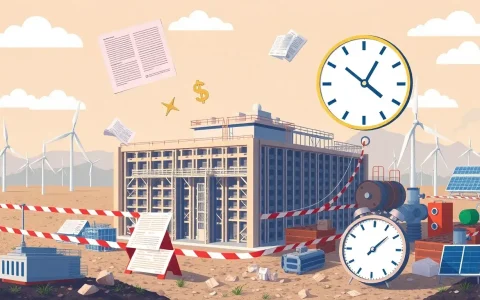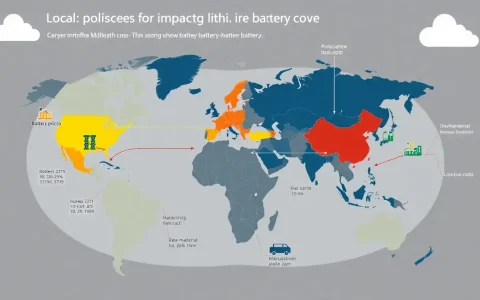
1. Battery recycling plays a significant role in enhancing sustainability in home energy storage; 2. It mitigates environmental hazards associated with improper disposal; 3. Recycling contributes to the conservation of natural resources; 4. It reduces the dependency on virgin materials, and 5. Implementing effective recycling systems supports the overall circular economy.
Battery recycling has emerged as an essential element of sustainable home energy solutions. With the increasing integration of energy storage systems in residences, understanding the impact of recycling processes on long-term ecological health is crucial. The intricacies of battery components, potential hazards in mismanagement, and the pressing need for sustainable practices underline the significance of this topic. By examining the multifaceted advantages of recycling, it becomes evident that the path toward independence from fossil fuels and traditional energy grids necessitates a well-structured approach to battery life cycle management. The entire ecosystem surrounding energy storage must shift toward sustainability, considering not just the immediate benefits of energy storage systems, but also the environmental implications of battery disposal.
Now, let’s delve deeper into the transformative effects of battery recycling on sustainable home energy storage systems.
1. UNDERSTANDING BATTERY RECYCLING IN HOME ENERGY STORAGE
When homeowners choose to integrate energy storage solutions, they often do so with the intention of optimizing energy consumption and reducing their carbon footprint. Understanding the nature of battery recycling is vital for fully appreciating its impact on sustainability. Batteries, particularly lithium-ion models, comprise various materials that can be repurposed or reused to minimize wastage and environmental pollution.
The recycling process involves systematically dismantling batteries to recover vital components like lithium, cobalt, nickel, and other metals. This process not only prevents hazardous materials from entering landfills, but it also significantly reduces the need for mining raw materials. Extracting these resources from the Earth is often environmentally damaging and energy-intensive, leading to habitat destruction and increased carbon emissions. Hence, by recycling batteries, homeowners contribute to conserving natural resources and minimizing destructive mining activities.
Furthermore, many companies now engage in incorporating recycled materials into new battery production, establishing a circular economy. This practice demonstrates the potential for innovative advancements in battery technology, allowing for the creation of efficient energy storage systems while simultaneously addressing environmental concerns.
2. ENVIRONMENTAL IMPACT AND RISKS OF BATTERY DISPOSAL
The environmental ramifications of improper battery disposal cannot be overstated. When batteries are discarded carelessly, they often leach harmful substances into the soil and waterways. These hazardous chemicals, such as lead and cadmium, pose serious health risks to ecosystems and human populations.
The accumulation of these toxic elements leads to a long-term degradation of environmental quality, prompting a need for comprehensive recycling strategies. Implementing robust battery recycling initiatives acts as a safeguard against such environmental catastrophes. It shifts the paradigm from a linear approach of producing, using, and discarding toward a more sustainable model where materials are continually regained and reused.
Moreover, as energy storage systems become increasingly prevalent in residential settings, the surge in used batteries will require adequate management of expired units. The implementation of stringent recycling regulations is imperative to ensure that public and environmental health remains protected. In doing so, households can engage confidently with energy storage technologies, knowing that they are not contributing to substantial environmental decline.
3. ECONOMIC ADVANTAGES OF BATTERY RECYCLING
Beyond environmental benefits, the economic advantages of battery recycling in home energy storage are notable. Recycling batteries can reduce costs for manufacturers, allowing them to source materials more sustainably as opposed to relying solely on mining new resources. This transition can drive down overall production costs, ultimately benefiting consumers in the form of reduced prices for energy storage systems.
Additionally, engaging in battery recycling promotes job creation within the recycling industry. Investment in battery recycling facilities can stimulate local economies by providing employment opportunities. Workers skilled in handling and reprocessing batteries are necessary, and a focus on developing this workforce contributes to a robust economy centered around sustainable technologies.
Moreover, as public awareness about environmental responsibility grows, many consumers show a preference for companies that prioritize sustainability. Businesses with strong recycling programs may enhance their brand image and attract a dedicated customer base committed to eco-friendly practices. This ongoing shift highlights the intersection of green initiatives with economic prosperity, promoting a future where both can coexist harmoniously.
4. TECHNOLOGICAL ADVANCEMENTS IN BATTERY RECYCLING
Technological advancements are profoundly transforming battery recycling processes, enhancing efficiency and efficacy. Innovations such as hydrometallurgical methods enable the extraction of metals from old batteries with a lower environmental footprint. Unlike traditional pyrometallurgical techniques, which can generate significant greenhouse gas emissions, these new methods prioritize sustainability.
Additionally, emerging technologies in battery design are leading to increasing recyclability. Manufacturers are adopting modular designs that facilitate easier disassembly, enabling more efficient recycling at the end of battery life. This shift can significantly reduce waste and enhance the overall sustainability of energy storage solutions in residential settings.
Furthermore, the rise of smart technologies introduces improved tracking and management systems for battery lifecycles. These technologies can assist in identifying batteries that have reached the end of their useful life, ensuring they are directed toward appropriate recycling channels. Streamlining this process can enhance recovery rates and contribute to the establishment of robust recycling infrastructures.
5. THE ROLE OF GOVERNMENTS AND POLICYMAKERS IN PROMOTING RECYCLING
Governments and policymakers hold a critical responsibility in establishing frameworks that encourage battery recycling, especially in the context of home energy storage. Implementing clear regulations surrounding battery production, usage, and disposal can provide necessary guidance to both consumers and manufacturers.
Such regulations may include mandates for collection programs, financial incentives for utilizing recycled materials, or penalties for improper disposal practices. By fostering a legislative environment that prioritizes recycling, public institutions can enhance the sustainability of home energy systems. Community awareness initiatives designed to educate the populace about the importance of recycling batteries are equally vital.
In addition to regulation, public investments in recycling infrastructure are crucial. Funding advancements in sorting and processing technologies will bolster the efficiency of recycling operations. Moreover, partnerships with private enterprises can enhance these initiatives, creating a collaborative approach that maximizes effectiveness.
6. CONSUMER ENGAGEMENT AND AWARENESS IN RECYCLING PRACTICES
Raising awareness among homeowners about the benefits of battery recycling is instrumental in enhancing sustainability. Consumers play a significant role in the demand for eco-friendly energy solutions, and their behaviors can drive market trends toward sustainable practices.
Engaging communities through educational programs that demonstrate the importance of battery recycling can lead to more responsible consumption. Demonstrations of proper disposal methods and information on local recycling facilities empower consumers to make informed choices about energy storage systems. Additionally, incentivizing recycling through rewards programs can encourage participation and promote responsible management of used batteries.
Moreover, fostering a culture of sustainability within neighborhoods encourages individuals to share their experiences and best practices. Community forums and discussions can establish a supportive environment for exchanging knowledge about battery recycling and energy systems. By cultivating these interactions, a collective commitment to sustainability can emerge, amplifying the positive impacts of recycling on energy storage.
7. STAKEHOLDERS IN THE RECYCLING ECOSYSTEM
The recycling ecosystem is a complex interplay of various stakeholders, each playing a vital role in promoting sustainable practices. Battery manufacturers, recycling companies, and consumers must collaborate to create effective and efficient recycling systems. Manufacturers are increasingly held accountable for their products, leading to designs that are easier to recycle and less harmful to the environment.
Recycling companies are responsible for implementing the systems necessary to recover valuable materials from old batteries. As technology advances, these companies are better equipped to handle more complex battery designs. Their role in the ecosystem is critical for closing the loop between production and disposal, ensuring that the materials are not wasted.
Consumers, on the other hand, must be aware of their responsibility in this cycle. By actively participating in recycling programs and supporting companies that prioritize sustainability, consumers can drive demand for green practices. Additionally, they can advocate for policies that facilitate and promote efficient recycling, ensuring that sustainability remains a shared goal.
8. FUTURE PROSPECTS OF BATTERY RECYCLING IN SUSTAINABILITY
Looking ahead, the prospects for battery recycling in the context of sustainability are promising. As technology continues to evolve, innovations in battery chemistry and recycling techniques will likely enhance efficiency. New materials that are easier to recycle or possess fewer environmental hazards are already being researched, which could lead to transformative changes in the field.
Moreover, greater integration of renewable energy sources will necessitate an increased reliance on energy storage solutions. As more homeowners embrace solar energy systems, the push for a comprehensive recycling framework becomes increasingly critical. Such alignments can position battery recycling as an essential component of a sustainable energy transition.
Additionally, global efforts toward climate change mitigation will further amplify the need for recycling programs. With regulatory bodies recognizing the importance of responsible battery management, there will be more incentives and supports for recycling initiatives. This momentum can facilitate the adoption of best practices, which will undoubtedly establish a more sustainable relationship between energy storage and waste management practices.
FREQUENTLY ASKED QUESTIONS
WHAT MATERIALS CAN BE RECYCLED FROM BATTERIES?
The recycling process recovers a variety of materials from used batteries, notably lithium, cobalt, nickel, and lead, among others. Lithium-ion batteries, commonly used in home energy storage, contain a mixture of these valuable metals, which can be extracted and repurposed for new battery production. Recycling not only conserves these finite resources but also reduces the environmental impact associated with mining new materials.
In the recycling process, batteries are disassembled carefully. For lithium-ion batteries, after disassembly, the individual components are subjected to hydrometallurgical or pyrometallurgical processes that allow for the separation and extraction of metals. For example, cobalt and nickel can be refined and reused in new batteries, while lithium can be converted back into a form usable for production. Additionally, other materials like plastic casings and electrolyte solutions can also be treated and recycled.
Moreover, advancements in recycling technologies have made extracting these materials more efficient and environmentally friendly. Thus, not only can battery recycling save resources, but it can also minimize the negative ecological implications tied to traditional sourcing methods.
HOW DOES BATTERY RECYCLING PROMOTE A CIRCULAR ECONOMY?
Battery recycling plays a crucial role in the establishment of a circular economy by facilitating the continuous reuse of materials within production cycles. In a circular economy, the goal is to minimize waste and maintain resources within circulation for as long as possible. With batteries being a significant input for energy storage systems, their effective recycling ensures that valuable materials are not discarded after their initial use.
When batteries reach their end-of-life stage, recycling allows for the recovery of critical metals, which can be reintegrated into the manufacturing process for new batteries. This closed-loop system not only reduces waste but also decreases the environmental impact associated with mining and refining new materials. Moreover, this approach can help stabilize material prices in the market, as recycled materials typically have lower fluctuations than those derived from virgin sources.
Furthermore, as awareness around sustainability grows, consumers increasingly prefer companies that engage with circular economy practices. The demand for products that utilize recycled materials can lead manufacturers to shift their production practices, ultimately fostering a robust recycling ecosystem and contributing to environmental stewardship.
WHAT ARE THE MAIN CHALLENGES TO BATTERY RECYCLING?
Battery recycling faces several challenges that hinder its overall effectiveness and efficiency. One of the primary obstacles is the complex chemistry of modern batteries, particularly lithium-ion variants that incorporate multiple materials. The presence of diverse compounds complicates the recycling process, often requiring specialized techniques and technologies to effectively recover materials.
Additionally, the lack of widespread recycling infrastructure poses a significant barrier. Many regions still lack accessible facilities to handle used batteries properly. As a result, many consumers may resort to improper disposal methods, leading to environmental contamination and the loss of recoverable resources. This situation can be exacerbated by a general lack of awareness regarding proper recycling practices, which further complicates efforts to establish a comprehensive recycling framework.
Regulatory inconsistency also represents a challenge. Different regions may have varying regulations surrounding battery production, usage, and disposal, making it difficult for companies to develop uniform recycling practices. This fragmentation can hinder the growth and effectiveness of recycling programs as organizations seek to navigate a complex regulatory landscape.
ENHANCING SUSTAINABILITY THROUGH STRATEGIC BATTERY RECYCLING INITIATIVES
Sustainability in home energy storage holds significant potential when coupled with focused recycling strategies. The path to an environmentally responsible future involves using previously invested resources wisely, reducing adverse environmental impacts, and promoting the health of ecosystems. As technology progresses and public awareness increases, it will be pivotal for all stakeholders to collaboratively engage in bolstering battery recycling initiatives. With thoughtful execution and a communal effort towards enhancing sustainability, the transition to a greener energy system can be effectively achieved, benefiting generations to come.
Original article by NenPower, If reposted, please credit the source: https://nenpower.com/blog/how-battery-recycling-affects-the-sustainability-of-home-energy-storage/











